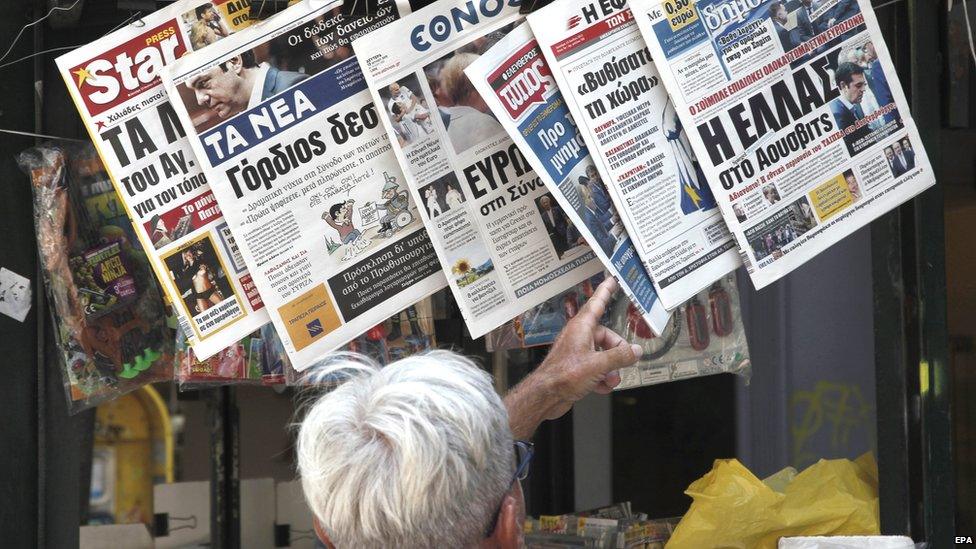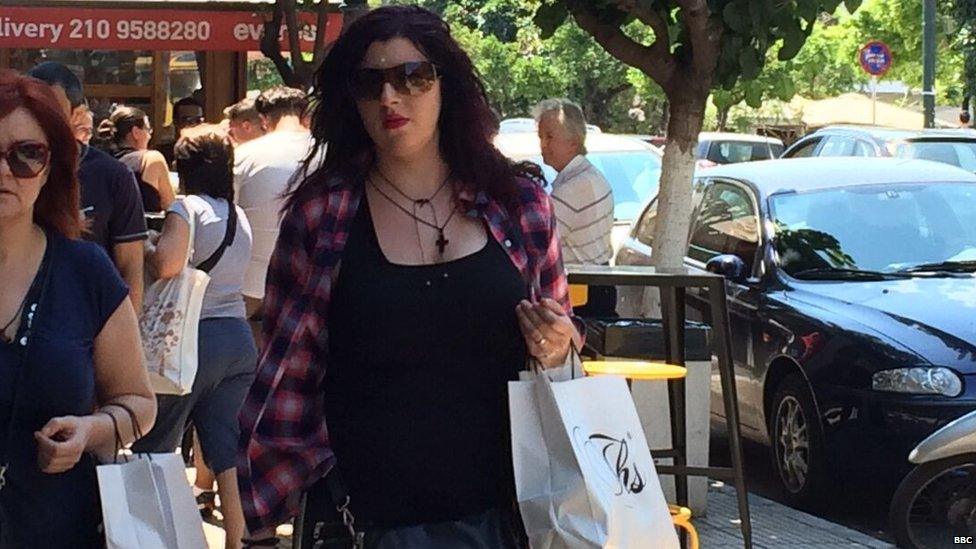Greece debt crisis: Anger in Athens at eurozone deal
- Published
There have been mixed views on the streets of Athens to the new agreement
Eurozone leaders say they have come to an agreement that will save Greece from disaster and stop the country falling out of the euro.
But in Athens, there is little mood for celebration.
The hashtag #ThisIsACoup has been trending on Twitter since Sunday night - not just in Greece but in Germany and internationally.
Greeks have taken to social media to express their dissatisfaction with the conditions their government has signed up to.
Prime Minister Alexis Tsipras will now have to rush measures on pension reforms, tax increases and spending cuts through parliament.
The agreement also includes plans for Greece to transfer assets to a €50bn fund to be privatised or managed under European supervision.

Greeks are digesting the news from Brussels
"It sucks to be honest," says 22-year-old physics student Dimitrios.
"It's another terrible deal. We are not just depressed, we are angry. I don't think this deal is going to help us."
The agreement was hammered out a week after Greeks sent a clear anti-austerity message by overwhelmingly voting "No" in a referendum on conditions offered by international creditors.
As Greeks try to go about their daily lives again today, many are asking where that message went.
Irene, 43, stops to talk briefly in the middle-class neighbourhood of Kallithea as she makes her way to visit a relative in hospital.
Healthcare is one of the areas of public services in Greece that has been hit hardest by the crisis.

Christos (left) and Dimitrios have very different views about the deal
"The vote was 'No', so why are we accepting measures people don't want?" she asks.
"I don't think this deal has the backing of the people."
Dimitra is waiting for a bus. "This deal is not for the people," she says. "It's for the banks and for the rich men who have already taken their money out of the country."
Her concerns are focused on higher taxes on basic food supplies such as pasta and beans.
"This is not Europe," she complains.
Crucially, the agreement includes no reduction in debt for Greece although Mr Tsipras said he had managed to secure restructuring of Greek debt.

But the deal could bring an end to the economic disruption the crisis has caused
But not everyone is angry - some are just relieved.
The economy here is close to collapse, capital controls remain in place, and there are still long queues at cash machines. People in line bunch together in patches of shade as they wait.
For Christos the most important thing right now for Greece is that the banks reopen so business can restart.
"I think it's a first step," he says. "People here rely on the banks.
"For the economy to recover, we need there to be faith in the financial system.
"Then people will feel more positive. This isn't a crisis, it's a cure."